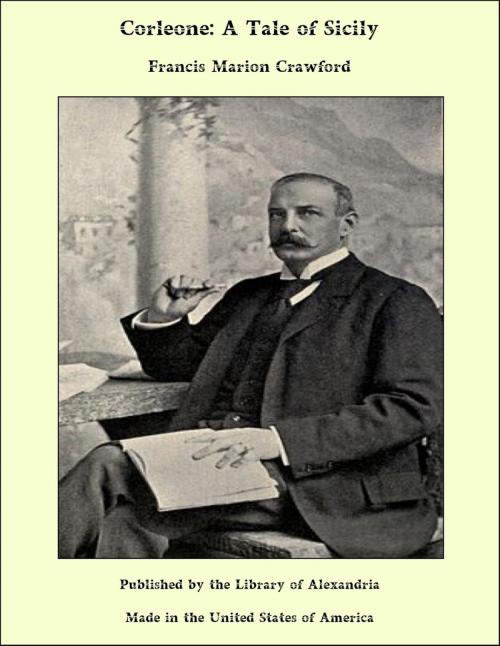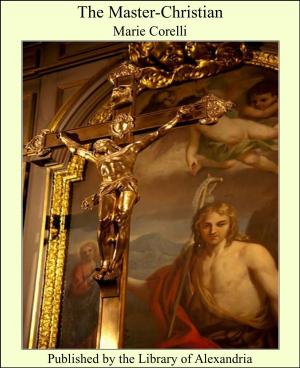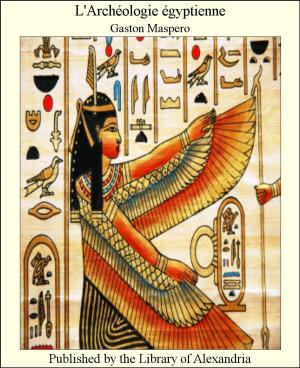Corleone: A Tale of Sicily
Nonfiction, Religion & Spirituality, New Age, History, Fiction & Literature| Author: | Francis Marion Crawford | ISBN: | 9781465599452 |
| Publisher: | Library of Alexandria | Publication: | March 8, 2015 |
| Imprint: | Language: | English |
| Author: | Francis Marion Crawford |
| ISBN: | 9781465599452 |
| Publisher: | Library of Alexandria |
| Publication: | March 8, 2015 |
| Imprint: | |
| Language: | English |
'If you never mean to marry, you might as well turn priest, too,' said Ippolito Saracinesca to his elder brother, Orsino, with a laugh. 'Why?' asked Orsino, without a smile. 'It would be as sensible to say that a man who had never seen some particular thing, about which he has heard much, might as well put out his eyes.' The young priest laughed again, took up the cigar he had laid upon the edge of the piano, puffed at it till it burned freely, and then struck two or three chords of a modulation. A sheet of ruled paper on which several staves of music were roughly jotted down in pencil stood on the rack of the instrument. Orsino stretched out his long legs, leaned back in his low chair, and stared at the old gilded rosettes in the square divisions of the carved ceiling. He was a discontented man, and knew it, which made his discontent a matter for self-reproach, especially as it was quite clear to him that the cause of it lay in himself. He had made two great mistakes at the beginning of life, when barely of age, and though neither of them had ultimately produced any serious material consequences, they had affected his naturally melancholic temper and had brought out his inherited hardness of disposition. At the time of the great building speculations in Rome, several years earlier, he had foolishly involved himself with his father's old enemy, Ugo del Ferice, and had found himself at last altogether in the latter's power, though not in reality his debtor. At the same time, he had fallen very much in love with a young widow, who, loving him very sincerely in her turn, but believing, for many reasons, that if she married him she would be doing him an irreparable injury, had sacrificed herself by marrying Del Ferice instead, selling herself to the banker for Orsino's release, without the latter's knowledge. When it was all over, Orsino had found himself a disappointed man at an age when most young fellows are little more than inexperienced boys, and the serious disposition which he inherited from his mother made it impossible for him to throw off the impression received, and claim the youth, so to speak, which was still his. Since that time, he had been attracted by women, but never charmed; and those that attracted him were for the most part not marriageable, any more than the few things which sometimes interested and amused him were in any sense profitable. He spent a good deal of money in a careless way, for his father was generous; but his rather bitter experience when he had attempted to occupy himself with business had made him cool and clear-headed, so that he never did anything at all ruinous. The hot temper which he had inherited from his father and grandfather now rarely, if ever, showed itself, and it seemed as though nothing could break through the quiet indifference which had become a second outward nature to him. He had travelled much, of late years, and when he made an effort his conversation was not uninteresting, though the habit of looking at both sides of every question made it cold and unenthusiastic. Perhaps it was a hopeful sign that he generally had a definite opinion as to which of two views he preferred, though he would not take any trouble to convince others that he was right.
'If you never mean to marry, you might as well turn priest, too,' said Ippolito Saracinesca to his elder brother, Orsino, with a laugh. 'Why?' asked Orsino, without a smile. 'It would be as sensible to say that a man who had never seen some particular thing, about which he has heard much, might as well put out his eyes.' The young priest laughed again, took up the cigar he had laid upon the edge of the piano, puffed at it till it burned freely, and then struck two or three chords of a modulation. A sheet of ruled paper on which several staves of music were roughly jotted down in pencil stood on the rack of the instrument. Orsino stretched out his long legs, leaned back in his low chair, and stared at the old gilded rosettes in the square divisions of the carved ceiling. He was a discontented man, and knew it, which made his discontent a matter for self-reproach, especially as it was quite clear to him that the cause of it lay in himself. He had made two great mistakes at the beginning of life, when barely of age, and though neither of them had ultimately produced any serious material consequences, they had affected his naturally melancholic temper and had brought out his inherited hardness of disposition. At the time of the great building speculations in Rome, several years earlier, he had foolishly involved himself with his father's old enemy, Ugo del Ferice, and had found himself at last altogether in the latter's power, though not in reality his debtor. At the same time, he had fallen very much in love with a young widow, who, loving him very sincerely in her turn, but believing, for many reasons, that if she married him she would be doing him an irreparable injury, had sacrificed herself by marrying Del Ferice instead, selling herself to the banker for Orsino's release, without the latter's knowledge. When it was all over, Orsino had found himself a disappointed man at an age when most young fellows are little more than inexperienced boys, and the serious disposition which he inherited from his mother made it impossible for him to throw off the impression received, and claim the youth, so to speak, which was still his. Since that time, he had been attracted by women, but never charmed; and those that attracted him were for the most part not marriageable, any more than the few things which sometimes interested and amused him were in any sense profitable. He spent a good deal of money in a careless way, for his father was generous; but his rather bitter experience when he had attempted to occupy himself with business had made him cool and clear-headed, so that he never did anything at all ruinous. The hot temper which he had inherited from his father and grandfather now rarely, if ever, showed itself, and it seemed as though nothing could break through the quiet indifference which had become a second outward nature to him. He had travelled much, of late years, and when he made an effort his conversation was not uninteresting, though the habit of looking at both sides of every question made it cold and unenthusiastic. Perhaps it was a hopeful sign that he generally had a definite opinion as to which of two views he preferred, though he would not take any trouble to convince others that he was right.















